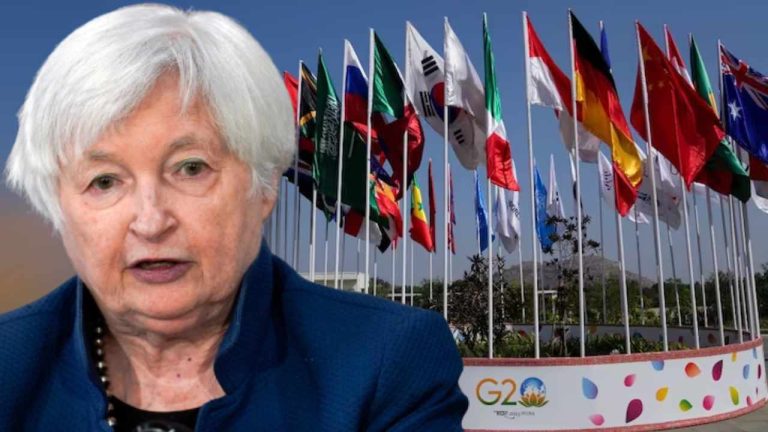
China remains a major player in the Bitcoin mining industry despite imposing a blanket ban on cryptocurrencies in 2021.
Chinese Bitcoin miners still control the lion’s share of the global network despite the country’s ban on cryptocurrencies.
Over 55% of the Bitcoin (BTC) mining network is still controlled by Chinese mining pools, according to Ki Young Ju, founder and CEO of CryptoQuant.
However, Bitcoin mining dominance is slowly shifting to US mining firms. Ju wrote in a Sept. 23 X post:

According to the Chinese government, 1,391 individuals have been prosecuted on money laundering-related charges in the first half of 2024.
Chinese lawmakers are considering revising an earlier anti-money laundering law to enhance capabilities to 'monitor' and analyze money laundering risks through emerging financial technologies—including cryptocurrencies.
According to a translated statement from the South China Morning Post, Legislative Affairs Commission spokesperson Wang Xiang announced the revisions on Sept. 9—citing the need to improve detection methods amid the "rapid development of new technologies."
The newly proposed legal provisions also call on the central bank and financial regulators to collaborate on guidelines to manage the risks posed by perceived money laundering threats from nascent technologies.

Power-intensive crypto mining is controversial in Paraguay, where an attempt at crypto regulation was vetoed because of it.
Property containing 2,738 crypto mining units was seized in Salto del Guairá, Paraguay, after the National Electricity Administration (ANDE) detected an unmetered power connection in the area. There is a bill before the country’s senate to ban crypto mining and other crypto-related activities pending comprehensive legislation and assurances from the national power supplier.
ANDE used artificial intelligence and power distribution analysis to zero in on the electricity theft, which it estimated was worth 1.1 billion guarani ($146,000) per month. Five transformers were also seized on the property. Four criminal charges may be brought against the operators of the illegal operation.
At least two other actions against illegal crypto farms — one in Salta del Guairá — were carried out in Paraguay in May, although those raids had much more modest results. All the government actions involved multiple agencies, including the National Police.
 A European lawmaker has urged authorities to impose a ban on cryptocurrencies citing the current crisis in the banking sector as a reason. Johan Van Overtveldt, former finance minister of Belgium, believes these assets bring no economic or social value. Belgium’s Ex-Finance Minister Suggests Ban on Decentralized Digital Currencies Member of the European Parliament, Johan […]
A European lawmaker has urged authorities to impose a ban on cryptocurrencies citing the current crisis in the banking sector as a reason. Johan Van Overtveldt, former finance minister of Belgium, believes these assets bring no economic or social value. Belgium’s Ex-Finance Minister Suggests Ban on Decentralized Digital Currencies Member of the European Parliament, Johan […] U.S. Treasury Secretary Janet Yellen says “it is critical to put in place a strong regulatory framework” for crypto on the sidelines of the G20 meeting for finance ministers and central bank governors. “We haven’t suggested outright banning of crypto activities,” Yellen added. Janet Yellen on ‘Strong’ Crypto Regulation U.S. Treasury Secretary Janet Yellen talked […]
U.S. Treasury Secretary Janet Yellen says “it is critical to put in place a strong regulatory framework” for crypto on the sidelines of the G20 meeting for finance ministers and central bank governors. “We haven’t suggested outright banning of crypto activities,” Yellen added. Janet Yellen on ‘Strong’ Crypto Regulation U.S. Treasury Secretary Janet Yellen talked […]
While China has cracked down on cryptocurrencies in the mainland, it’s apparently taking a softer approach to Hong Kong’s crypto hub aspirations.
Hong Kong’s ambition of becoming a cryptocurrency hub is reportedly seeing subtle support from the Chinese government, in what could be seen as a contrast to the mainland’s hard-line anti-crypto stance.
In October last year, the government of Hong Kong floated the idea of introducing its own bill to regulate crypto and allow retail investors to “directly invest into virtual assets” that could possibly be in contrast to China’s widespread crypto ban.
According to people familiar with the matter, Beijing officials have not been brazenly opposed to the idea. According to a Feb. 20 Bloomberg report, it is understood that representatives from the China Liaison Office have been frequenting Hong Kong crypto gatherings seeking to understand what’s going on.
So far, their encounters with Beijing officials on the matter have been friendly, according to those familiar, which is being perceived by local crypto business operators that Beijing — albeit very subtly — may be open to using Hong Kong as a testbed for crypto.
New Bitcoin narrative brewing: Hong Kong is getting into crypto.
— Luke Martin (@VentureCoinist) February 16, 2023
What makes it even more interesting is the People's Bank of China is one of the only central banks in the world cutting rates & easing.
Asia is bidding [sources] pic.twitter.com/n5cwE7jI2l
Hong Kong is a Special Administrative Region of China, allowing it to have its own laws and governance. The former British colony was transferred back to China in 1997 following a guarantee from Beijing there would be no Chinese interference with the region’s economic and political systems for 50 years, known as the “one country, two systems” principle.
National People’s Congress member and digital asset lawyer Nick Chan was quoted as saying that as long as there are no violations of “the bottom line, to not threaten financial stability in China,” then the city is free to undertake its own pursuits.
Related: Crypto’s next bull run will come from the East: Gemini co-founder
On Feb. 20, Hong Kong’s Securities and Futures Commission outlined a new crypto license regime that proposed that all centralized exchanges that operate in the region must be licensed with the regulator.
It also proposed allowing retail traders access to licensed cryptocurrency trading platforms, saying public feedback highlighted that denying access to crypto markets may push Hong Kongers to trade on unregulated overseas platforms.
The new regulatory push has spurred many crypto businesses to seek expansion into the city. Most recently the exchange Huobi Global said it would seek a local license and plans to open a new Hong Kong-only exchange with a focus on institutional and high-net-worth individuals.
 India’s finance minister has informed parliament that the central bank, the Reserve Bank of India (RBI), wants cryptocurrencies to be prohibited. However, she noted that “any legislation for regulation or for banning can be effective only after significant international collaboration.” Indian Finance Minister on Crypto Ban and Regulation Indian Finance Minister Nirmala Sitharaman answered some […]
India’s finance minister has informed parliament that the central bank, the Reserve Bank of India (RBI), wants cryptocurrencies to be prohibited. However, she noted that “any legislation for regulation or for banning can be effective only after significant international collaboration.” Indian Finance Minister on Crypto Ban and Regulation Indian Finance Minister Nirmala Sitharaman answered some […] An op-ed article published in the state-backed Chinese publication Economic Daily, has suggested that the recent crash of the Terra blockchain’s LUNA and the de-pegging of the UST stablecoin vindicate the Asian country’s decision to ban crypto-related activities. In the article, the author names the interest rate hikes by the U.S. Federal Reserve and the […]
An op-ed article published in the state-backed Chinese publication Economic Daily, has suggested that the recent crash of the Terra blockchain’s LUNA and the de-pegging of the UST stablecoin vindicate the Asian country’s decision to ban crypto-related activities. In the article, the author names the interest rate hikes by the U.S. Federal Reserve and the […]
Nigeria’s central bank has upgraded its eNaira to steer the country away from crypto even after a UN report stated that restrictions on digital currencies are stifling the nation's fintech sector.
The Central Bank of Nigeria (CBN) is moving ahead with plans to upgrade the country’s central bank digital currency (CBDC) to be used on a wider range of goods and services. It is also maintaining harsh crypto restrictions that cripple the country's fintech sector.
The CBN Branch Controller Bariboloka Koyor spoke at a campaign aiming to “sensitize” businesses to the eNaira at a market in the country's most populous city of Lagos on May 9 according to a report from Vanguard. Koyor stated:
“Starting from next week, there is going to be an upgrade on the eNaira speed wallet app that will allow you to do transactions such as paying for DSTV or electric bills or even paying for flight tickets.”
Koyor said the upgrade was launched to make onboarding easier, touting its wallet that had no charges and was faster than internet banking. He added that in the future, the eNaira will be the only way to receive financial assistance from the government, stressing the advantages of early adoption.
“This is a project that the CBN has rolled out to reach every Nigerian in terms of financial inclusion and in terms of efficiency, reliability, and safety of banking transactions so that we can do banking transactions very easily and safely and the people in Nigeria can enjoy the benefit of the eNaira.”
The value of the naira has fallen by over 209% in the past six years which has pushed Nigerians to adopt crypto in droves. An April report from the KuCoin crypto exchange highlighted that around 33.4 million Nigerians owned or traded cryptocurrencies in the last six months.
Restrictions on crypto trading in the country tightened after the launch of the eNaira in October 2021. The CBN banned banks from servicing crypto exchanges in February of the same year but real enforcement happened in November 2021 when the CBN ordered the accounts of two crypto traders to be frozen.
This crackdown led to commercial banks in the country tracking their customer's accounts looking for signs of cryptocurrency trading which could cause accounts for fintech businesses to be flagged.
The restrictions on trading were cause for concern in an April report jointly published by the Secretary Generals of the Organisation for Economic Co‑operation and Development (OECD) and the United Nations (UN).
Related: The Central African Republic reportedly passes a bill to regulate crypto use
The report focused on the urbanization of Africa and said young Africans working in the tech sector “creating apps or trading digital currencies” were at risk from arbitrary government policies. It singled out Nigeria as an example, stating:
“The restrictions on cryptocurrency transactions…in Nigeria have crippled foreign direct investment in the fintech industry and negatively impacted millions of young Nigerians who earn a living from the sector. Many have found a way, however, to lawfully bypass these restrictions and continue business, effectively denying Nigeria the taxes and transaction fees that would otherwise come into the system”
There are no signs of CBDC adoption slowing down, recent research found 80% of central banks were considering a CBDC. On May 10, Tanzanian officials said that their CBDC plans are accelerating.
The Bank of Tanzania Governor Florens Luoga said in a Bloomberg interview that the country sent officials to countries with CBDC experience, including Nigeria, to learn from them directly citing concerns of “cryptocurrency speculators”.